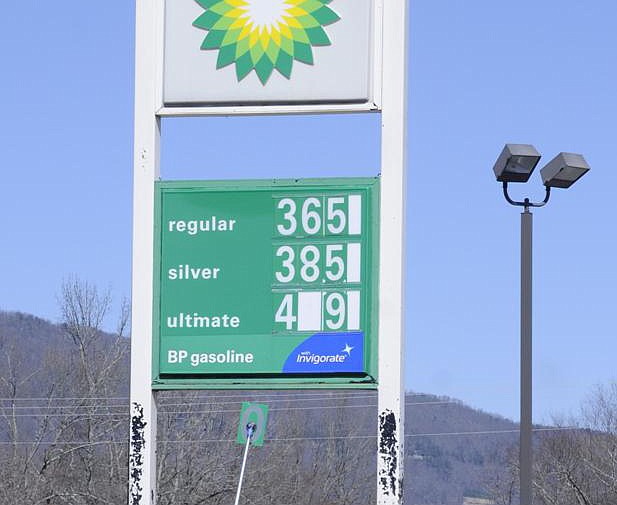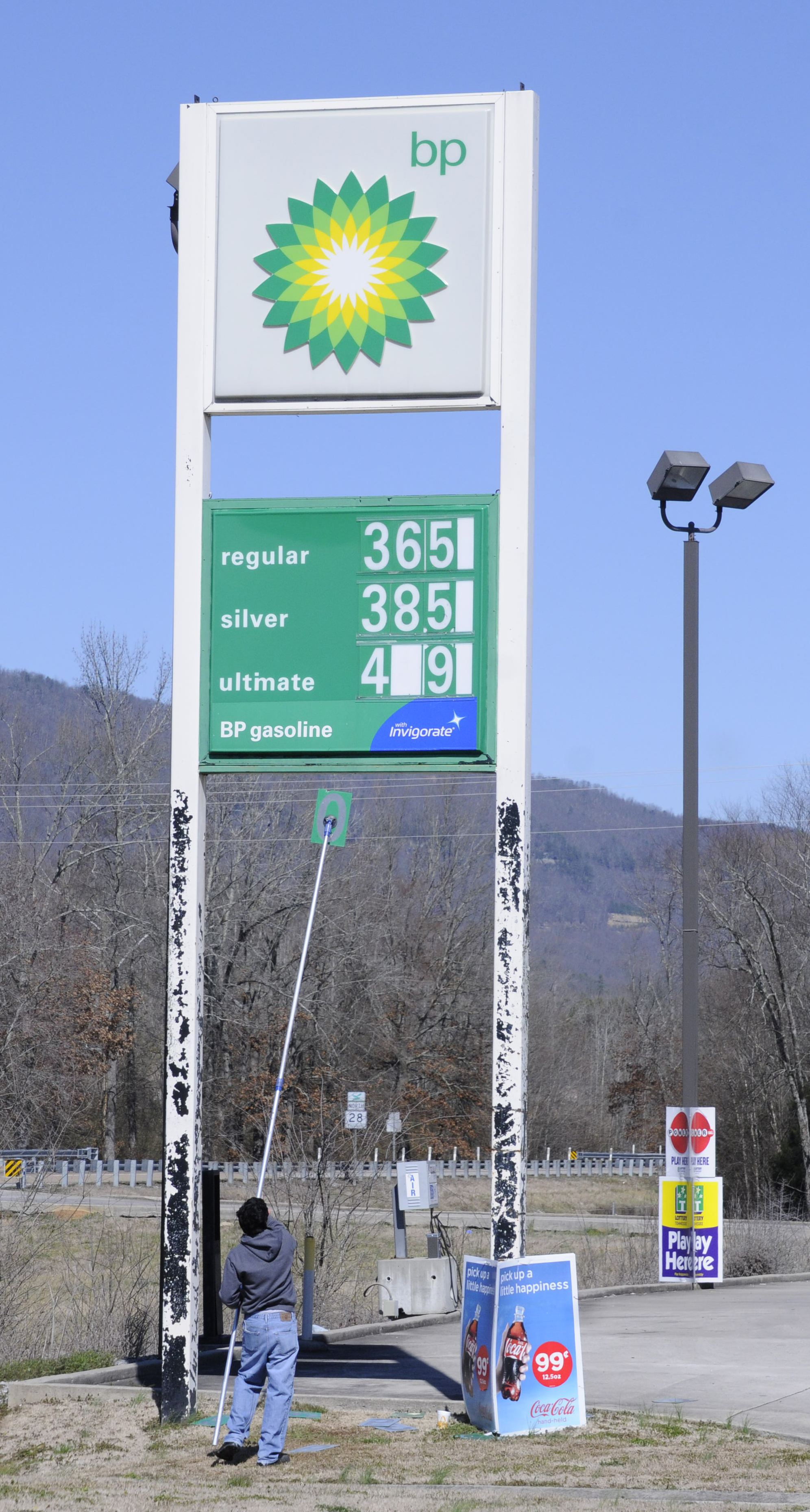Going up? Gas prices rise 41 cents in past month and are likely to continue
Friday, January 1, 1904
PUMP PRICES
$3.59: Average price of a gallon of gas in Chattanooga on Tuesday, up 25 cents a gallon from a week ago$3.75: Average price of a gallon of gas nationwide Tuesday, up 15 cents a gallon in the past week$3.56: Average price of a gallon of gas nationwide a year ago, or 19 cents
CHEAPER RATES FOR ELECTRICITY
• 1.45 percent - Reduction in electricity prices in Chattanooga in March due to TVA lowering fuel cost adjustment• $2.09 - Average residential savings because of the lower rates in March• $142.46 - Typical monthly residential electric bill for Chattanooga residence with electric heatSource: TVA, EPB
The average price of a gallon of gasoline in Chattanooga has jumped 41 cents in the past month and could be headed higher as the economy improves and winter fuel undergoes its seasonal change in many cities next month.
Rick Neufeld feels the pain at the pump every time he fills the 40-gallon tank of his Ford F-550 truck used to deliver rock for his Stone Center. He also has to pay several hundred dollars more than he did last summer to get stone deliveries from his source in South Georgia.
"Fortunately, the building market seems to be coming back, but these price increases don't seem fair or logical," Neufeld said. "It looks like a lot of speculators in the market, and we're paying the price."
Gas prices which had slumped to just over $3 a gallon at the start of the year have risen for 33 consecutive days and averaged nearly $3.59 per gallon in Chattanooga on Tuesday, according to the AAA fuel gauge surveys of area service stations.
Despite the local jump in pump prices, Chattanooga gas prices Tuesday still averaged 16 cents a gallon less than the U.S. average.
"You buy $15 of gas, and it doesn't get you very far," East Ridge motorist Johnny Ford said Tuesday while filling up his Ford station wagon. "If prices keep going up, I'm going to have to ride my bike to work."
Mercedes Schapiro said she is driving less, but says like most Americans she is dependent upon her vehicle.
"It's not fair, but there's not much we can do about it," she said.
The rising gasoline prices come even as the United States now produces more than half the oil it consumes. The nearly 800,000 barrel-per-day increase in U.S. production output from 2011 to 2012 reflected the largest one-year jump since oil drilling began in 1859.
The U.S. Energy Information Administration projects that U.S. oil production will rise from 6.89 million barrels per day in November 2012 to 8.15 million by December 2014. At the same time, the International Energy Agency has lowered its estimates for global demand for oil.
Bart Chilton, a commissioner at the Commodity Futures Trading Commission, argues that speculators are bidding up oil prices and pushing up what motorists pay at the pump. He argues that trading is dominated by Wall Street banks, hedge funds and other financial institutions that have no intention to take delivery of the oil needed to make gasoline.
"It's speculators who are moving markets," Chilton said. "They are almost exclusively the entire market at certain periods of time."
But gas prices have also been pushed higher by the nearly 1 million barrels a day of capacity that has been idle with eight refinery closures or announced closures on the U.S. East Coast and in the Caribbean over the past year.
"What the market is really pricing in is potentially a new era of tighter gasoline supplies that are heavily reliant on imports," said John Kilduff, a partner in the energy trading firm Again Capital in New York. "We might not ever turn back from these high prices. This isn't episodic."
Despite higher gas prices, Tennessee Valley home-owners will get some break in their energy costs next month. The Tennessee Valley Authority, flush with more abundant cheap hydroelectric power from its rain-swollen reservoirs, is cutting its monthly fuel cost adjustment in March. The change should reduce rates for Chattanooga electric users nearly 1.5 percent, or just over $2 a month in savings.
"The benefits of having this rain and our hydro units is this low-cost power and now we also have all of our nuclear units back on line from the refueling outage," TVA Chief Financial Officer John Thomas said.
TVA adjusts its rates based upon its fuel costs each month. Thomas said consumers shouldn't expect the downward trend to continue.
"As warmer weather comes this summer, we'll be running more expensive generation so the average will go up again," he said.
The Associated Press contributed to this story.

